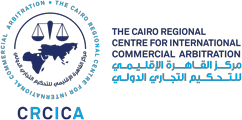About Us
Then & Now
The Cairo Regional Centre for International Commercial Arbitration (CRCICA or the Centre) is an independent non-profit international organisation established in 1979 under the auspices of the Asian African Legal Consultative Organisation (AALCO), in performance of AALCO’s decision, made at the Doha Session in 1978, to establish regional centres for international commercial arbitration in Africa and Asia, seeking to promote international commercial arbitration in the Afro-Asian area.
In the exchange of letters between AALCO’s secretary general and the Egyptian Minister of Justice on 21 January 1979 establishing CRCICA, AALCO expressed its view on the necessity of establishing institutions in Africa and Asia, its arguments included the importance of:
- Providing a familiar forum for disputes arising from international transactions related to the two continents through institutions that will apply the UNCITRAL Arbitration Rules;
- Enhancing cooperation between regional and international institutions; and
- Promoting international commercial arbitration in the Asian and African regions.
In 1979, an international agreement was signed between the Egyptian government and AALCO. Many Agreements were concluded between AALCO and the Egyptian government, culminating in the Headquarters Agreement in 1987, approved by Egyptian Presidential Decree No. 399/1987. CRCICA’s status as an international organisation was recognised and the Centre and its branches were endowed with all necessary privileges and immunities of an international organisation fully independent of its host state, ensuring their independent functioning.
CRCICA provides a system of dispute settlement for parties engaged in trade, commerce and investment. It provides case management services and administers international, regional and domestic arbitrations and other alternative dispute resolution (ADR) mechanisms according to the CRCICA Rules, which include arbitration, mediation and dispute board rules.
CRCICA also provides administrative and technical assistance to parties involved in ad hoc arbitrations as well as high-tech hearings rooms to parties involved in other institutional proceedings under various rules such as International Chamber of Commerce (ICC), International Centre for Settlement of Investment Disputes (ICSID), Permanent Court of Arbitration (PCA) and Court of Arbitration for Sport (CAS) rules. Such assistance is against or without a fee depending on the arrangement with the relevant institution.
CRCICA has operated continuously in Egypt as an international arbitration centre, enjoying full financial autonomy, with a firmly stable financial position. Today, CRCICA stands as Egypt’s premier arbitral institution, a leading arbitral institution in the Middle East and in Africa, and ranks globally among prominent arbitral institutions – as a marked contender for the first choice of institution in Africa and the Middle East.
Mission & Objectives
CRCICA is an arbitral institution, which operates in furtherance of the following objectives:
- Providing effective dispute resolution solutions to its users;
- Enabling access to a cost-effective arbitral process by offering case management and hearing services according to best arbitration practice;
- Promoting arbitration and ADR culture as preferred dispute resolution mechanisms;
- Advancing the understanding of arbitration and other ADR mechanisms within the Afro-Asian region;
- Promoting arbitration and other ADR techniques in the Afro-Asian area through the organisation of international conferences and seminars, as well as the publication of researches serving both the legal and business communities;
- Contributing to enriching the progress of the economic development scheme in the African and Asian countries;
- Contributing to improving the investment climate through cost-effective settlement of trade and investment disputes;
- Facilitating the exchange of knowledge in relation to the fields of arbitration and ADR through organising training courses, workshops and conferences; and
- Supporting the development of legal education to enhance law students’ skills and knowledge in the field of arbitration and ADR.

